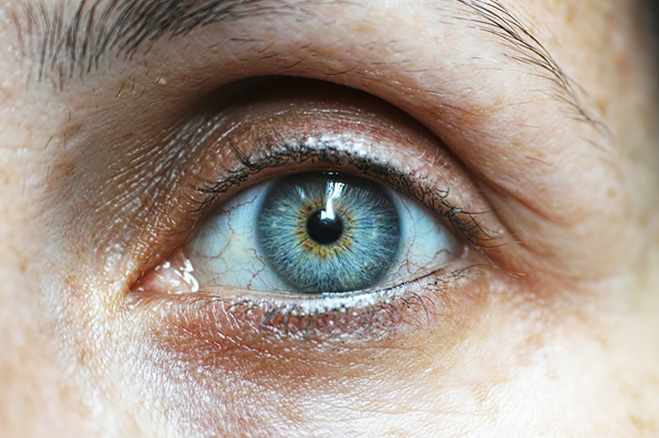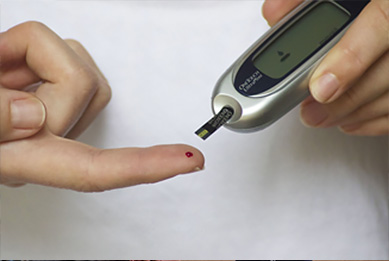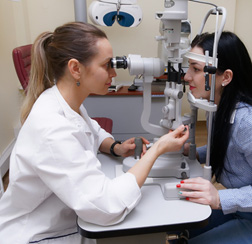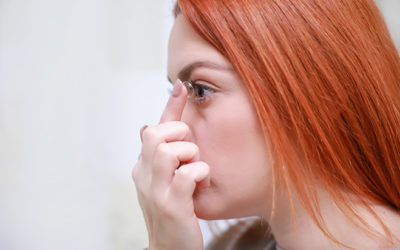The Connection Between Diabetes and Vision Loss


You probably know that diabetes is a growing problem in New Zealand. Last month it was reported in the news that the number of people with type 2 diabetes could almost double in two decades. But did you know that diabetes and eyesight are connected, too? Diabetes is the leading cause of new blindness in adults. Optometrists are as concerned about the increasing levels of diabetes as other health professionals are. Here’s why.
How does diabetes affect the eyes?
You’ve been diagnosed with diabetes, or are considered pre-diabetic. What now?
 Diabetic retinopathy is quite common in people with diabetes, or at least its early warning signs are. The American Diabetes Association has found that nearly all people with type 1 diabetes, and up to 60% of people with type 2 diabetes, exhibit diabetic retinopathy within the first 20 years of having the disease. The situation is likely similar in New Zealand.
Being diagnosed with diabetes is no doubt scary. The good news in terms of looking after your vision, though, is that if detected early and monitored properly, full-blown cases of diabetic retinopathy can be avoided in many cases. The early stages of diabetic retinopathy can develop into a more serious condition, called proliferative retinopathy. The New Zealand Association of Optometrists have found that if left untreated, proliferative retinopathy leads to serious vision loss in around 50% of patients. So the answer to preventing vision loss is detection of the problem followed by treatment and management.
Diabetic retinopathy can be slowed by paying careful attention to blood glucose levels, blood pressure and cholesterol levels. Your HbA1C (glycated haemoglobin) levels should be checked frequently. Your GP or diabetes specialist will be able to talk you through this (if you’ve lived with diabetes for a long time you’ll already know all about HbA1C!) and let you know what a safe level is for your vision.
Diabetic retinopathy is quite common in people with diabetes, or at least its early warning signs are. The American Diabetes Association has found that nearly all people with type 1 diabetes, and up to 60% of people with type 2 diabetes, exhibit diabetic retinopathy within the first 20 years of having the disease. The situation is likely similar in New Zealand.
Being diagnosed with diabetes is no doubt scary. The good news in terms of looking after your vision, though, is that if detected early and monitored properly, full-blown cases of diabetic retinopathy can be avoided in many cases. The early stages of diabetic retinopathy can develop into a more serious condition, called proliferative retinopathy. The New Zealand Association of Optometrists have found that if left untreated, proliferative retinopathy leads to serious vision loss in around 50% of patients. So the answer to preventing vision loss is detection of the problem followed by treatment and management.
Diabetic retinopathy can be slowed by paying careful attention to blood glucose levels, blood pressure and cholesterol levels. Your HbA1C (glycated haemoglobin) levels should be checked frequently. Your GP or diabetes specialist will be able to talk you through this (if you’ve lived with diabetes for a long time you’ll already know all about HbA1C!) and let you know what a safe level is for your vision.What is a retinal examination?
 A retinal examination is not invasive, and the drops just feel a little funny for a while. They will make your eyes sensitive to the sun for a few hours, so bring a pair of sunglasses with you and don’t plan on driving home immediately after your appointment.
Retinal examinations are recommended once every two years for people living with diabetes. Your optometrist will tell you if they think you need examinations more frequently than this. Of course, if you encounter any sight issues between these two-yearly examinations, contact your optometrist immediately. We’re here to help.
A retinal examination is not invasive, and the drops just feel a little funny for a while. They will make your eyes sensitive to the sun for a few hours, so bring a pair of sunglasses with you and don’t plan on driving home immediately after your appointment.
Retinal examinations are recommended once every two years for people living with diabetes. Your optometrist will tell you if they think you need examinations more frequently than this. Of course, if you encounter any sight issues between these two-yearly examinations, contact your optometrist immediately. We’re here to help.Concerned about your eyes? Worried that you could be diabetic? Contact us to have a chat about your needs.
Featured Posts
Everything You Need to Know About Myopia
The term ‘myopia’ might sound scary, but it’s simply the medical term for shortsightedness, or nearsightedness. If you have myopic vision, you will be able to…
Why You Should Make the Switch to Contact Lenses
If you wear glasses you probably remember the first day you received your prescription from your optometrist: the excitement you felt at being able to see clearly after…
Address
Cnr Great South Road & Rockfield Road, Greenlane 1051
Phone
09 525 1516
Hours
Mon to Fri: 9am – 5pm
Sat to Sun: Closed
Holidays: Closed


